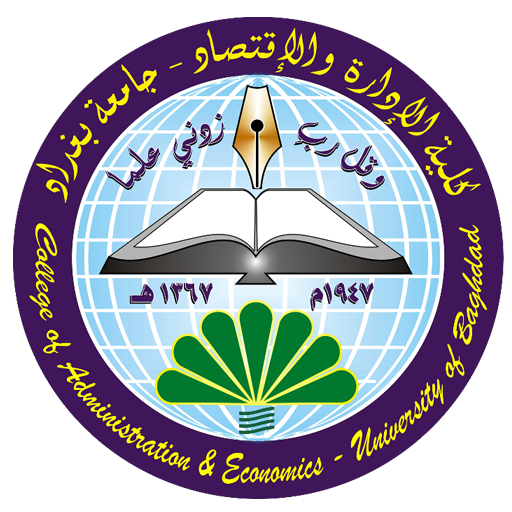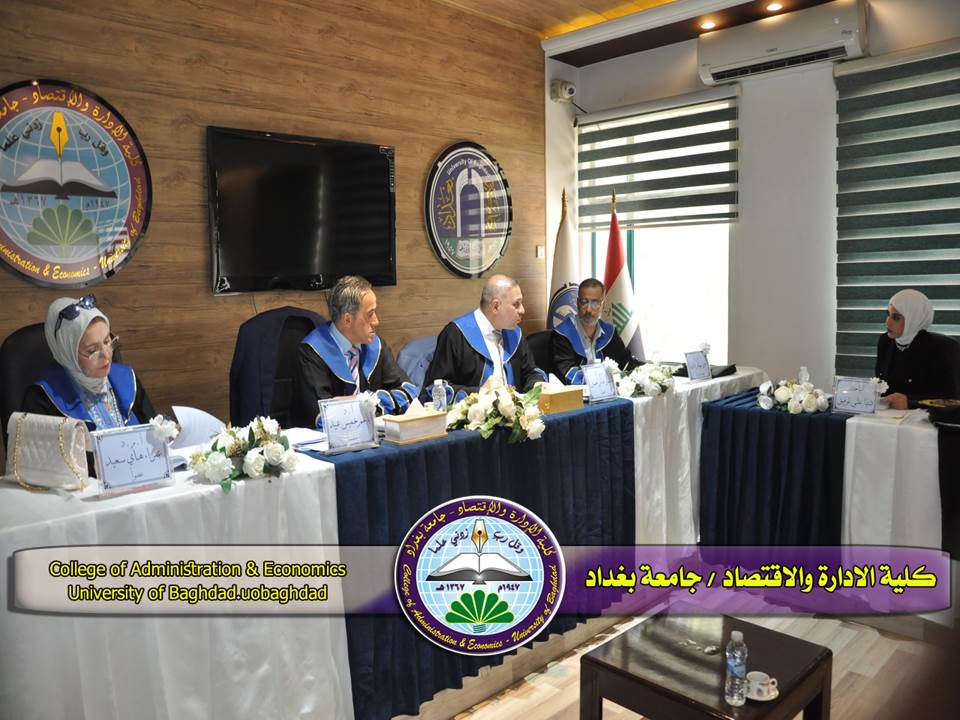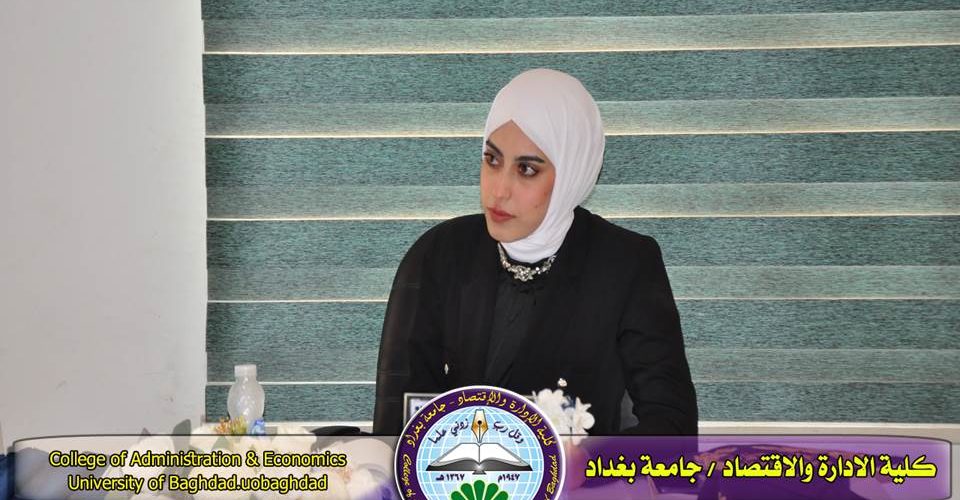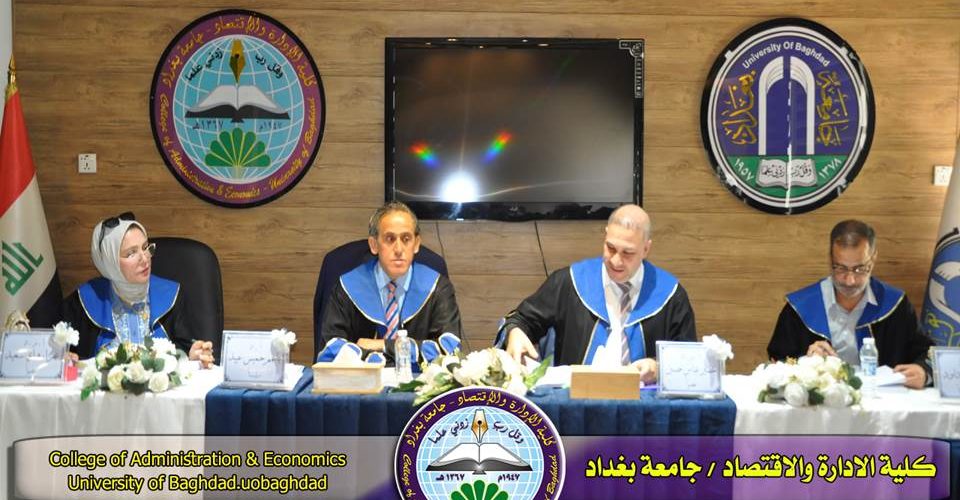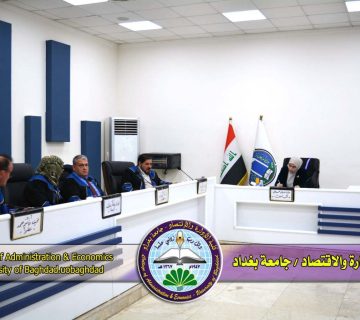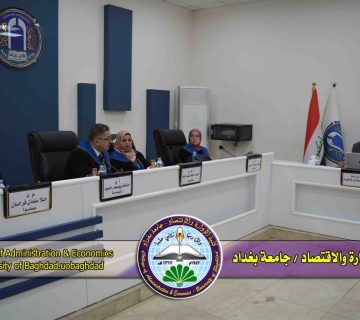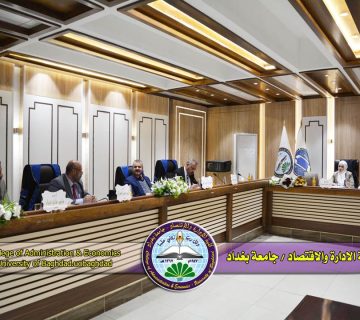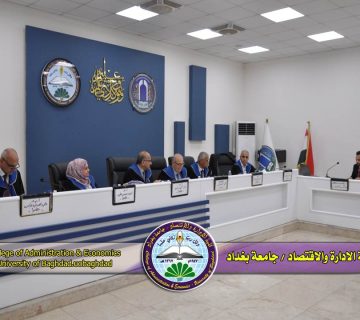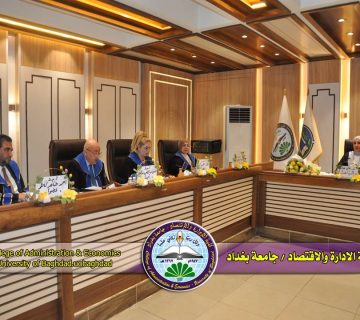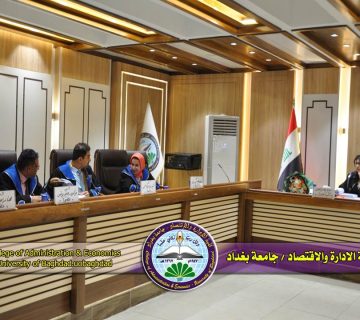The College of Administration and Economics at the University of Baghdad discussed , a master’s thesis in field of Economic by the student ( Dunya Ali Tawfiq ) and tagged with ( The impact of the disparity between the official and parallel exchange rates on the price index of the Iraqi economy) , Under supervision of (Assist.Prof. Dr. Samir Siham Daoud )
This research seeks to shed light on the impact of the disparity between the official and parallel exchange rates on the price index in the Iraqi economy. The study aims to provide a comprehensive analysis of this phenomenon by reviewing the relationship between exchange rate disparities and other economic variables. Economic data covering the period from 2004 to 2023 will be analyzed, a period that witnessed significant changes in monetary and economic policies. Furthermore, parallel exchange markets significantly impact the Iraqi economy by increasing inflation, as prices in the parallel market are usually higher than those in the official market, leading to overall price increases and reduced confidence in the economy. The presence of a parallel market indicates economic instability and a lack of investor confidence, as well as currency smuggling, as individuals and companies may resort to the parallel market to smuggle currency out of the country, affecting foreign exchange reserves. Therefore, reducing the gap between the official and parallel exchange rates is essential for achieving economic stability in Iraq. One of the most important conclusions reached by the study is that the policies of the Central Bank of Iraq have contributed to reducing the gap between the official and parallel rates. However, economic and political challenges continue to hinder full stability. The increased demand for the dollar in the parallel market has widened the gap between the two rates, negatively impacting local price levels. The study made several recommendations, the most important of which is for the Central Bank of Iraq to adopt more flexible and stable tools between the official and parallel exchange rates, taking into account the impact of non-economic factors such as the security and political situation. It also recommended strengthening oversight of the parallel market: Strict oversight must be imposed on illegal speculation in the parallel market by activating the role of internal oversight bodies between the Central Bank and security agencies. Reducing this gap is not only essential for achieving economic stability, but also a prerequisite for improving the investment environment, boosting local production, and alleviating the economic burden on citizens. Thus, this study represents an important step towards a deeper understanding of this issue and attempting to find practical solutions to address it.

